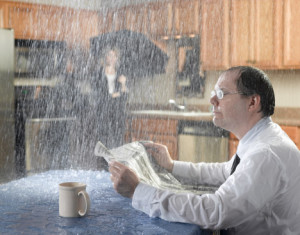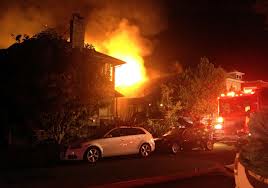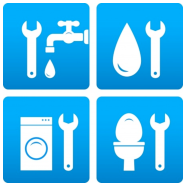Tenant Rights for a Habitable Home
 Landlord Repair Requested by Tenant
Landlord Repair Requested by Tenant
Habitable A tenant has a right to live in a habitable rental property. What does habitable really mean? The law of habitability basically makes maintenance of the rental property the responsibility of the landlord, who must comply with local building and health codes. A habitable property is one that has adequate heating, water, electricity, cleanliness, and is structurally sound.
Landlord – Keep it Habitable
 In Florida, the Landlord and Tenant Act (Florida Statutes §83.51, §83.54, §83.56 deals specifically with this. Some highlights for a single-family home or duplex are as follows:
1. Comply with requirements of applicable building, housing and health codes
2. Where there are no applicable building, housing or health codes; maintain the
In Florida, the Landlord and Tenant Act (Florida Statutes §83.51, §83.54, §83.56 deals specifically with this. Some highlights for a single-family home or duplex are as follows:
1. Comply with requirements of applicable building, housing and health codes
2. Where there are no applicable building, housing or health codes; maintain the
– Roof
– Windows
– Screens
– Floors
– Steps
– Porches
– Exterior walls
– Foundation and all other structural components in good repair and capable of resisting normal forces or loads.
– Locks and keys
– Clean and safe conditions of common areas
– Garbage removal and outside receptacles provided
– Functioning facility for heat during winter
– Functioning facility for running water
– Functioning facility for hot water
– The extermination of rats, roaches, ants, wood-destroying organisms, and bedbugs. When such extermination requires the tenant to vacate the premises, the landlord shall not be liable for damages, but shall abate the rent. Temporary vacate of premises by the tenant is not to exceed 4 days on 7 days’ written notice for this type of extermination
– Working smoke detection device installed – an electrical or battery-operated device which detects visible or invisible particles of combustion and which is listed by Underwriters Laboratories, Inc., Factory Mutual Laboratories, Inc., or any other nationally recognized testing laboratory using nationally accepted testing standards.
None of these items pertain to a mobile home owned by the tenant. Also, this does not mean that the landlord is obligated to pay for utilities, water, fuel, or garbage removal, although he/she may choose to include that in the rental agreement.
Tenant – Keep it Habitable
The Landlord and Tenant Act (Florida Statutes §83.52) also has standards for the tenant obligation to maintain the premises. This would include the following: – Comply with all obligations imposed upon tenants by applicable provisions of building, housing, and health codes. – Keep that part of the premises which he or she occupies and uses clean and sanitary. – Remove from the dwelling unit all garbage in a clean and sanitary manner. – Keep all plumbing fixtures in the dwelling unit or used by the tenant clean and sanitary and in repair. – Use and operate in a reasonable manner all electrical, plumbing, sanitary, heating, ventilating, air-conditioning and other facilities and appliances, including elevators.
– Not destroy, deface, damage, impair, or remove any part of the premises or property therein belonging to the landlord nor permit any person to do so.
– Conduct himself or herself, and require other persons on the premises with his or her consent to conduct themselves, in a manner that does not unreasonably disturb the tenant’s neighbors or constitute a breach of the peace.
ventilating, air-conditioning and other facilities and appliances, including elevators.
– Not destroy, deface, damage, impair, or remove any part of the premises or property therein belonging to the landlord nor permit any person to do so.
– Conduct himself or herself, and require other persons on the premises with his or her consent to conduct themselves, in a manner that does not unreasonably disturb the tenant’s neighbors or constitute a breach of the peace.
Minimal Requirement for Tenant to Request Repairs
If the tenant has kept his or her obligations and there is an issue of repair in one of the landlord categories, the correct steps must be followed. A. You must be current on your rent. B. The problem must be severe: a. As in the plumbing has become so bad that it cannot be used in a clean and sanitary manner. b. There is a hole in the roof and the rain comes in. c. The door is broken and you cannot close it against the weather or lock it against the public.
C. It is not your fault. You (or a guest) did not cause the problem either deliberately or through negligence or carelessness.
D. Write a letter to the landlord addressing the needed repair (refer to the list under Landlord – Keep it Habitable). Keep a copy for yourself.
E. Send this letter in a manner that requires a signature so that you are certain the landlord has received this information. One such method is certified mail, return receipt requested.
F. Use the following format as a template to guide you – a sample letter is also included.
G. If the landlord agrees on a requested repair, send a follow up letter confirming that promise. This is called a letter of understanding. This should also be sent certified mail, return receipt requested.
c. The door is broken and you cannot close it against the weather or lock it against the public.
C. It is not your fault. You (or a guest) did not cause the problem either deliberately or through negligence or carelessness.
D. Write a letter to the landlord addressing the needed repair (refer to the list under Landlord – Keep it Habitable). Keep a copy for yourself.
E. Send this letter in a manner that requires a signature so that you are certain the landlord has received this information. One such method is certified mail, return receipt requested.
F. Use the following format as a template to guide you – a sample letter is also included.
G. If the landlord agrees on a requested repair, send a follow up letter confirming that promise. This is called a letter of understanding. This should also be sent certified mail, return receipt requested.
Sample Template: Request for Repairs
(Date of letter) (Name of Landlord) (Address of Landlord) Dear (Name of Landlord), State the item(s) in need of repair State how this causes the premises to not comply with the habitable definition, it’s effect on you, what you want done, and when Provide your contact information Sincerely, (Tenant name)Sample Letter: Request for Repairs
May 3, 20xx Ms. Lisa Bilding 23 Oakmont Street City Center, MD 55555 Dear Ms. Bilding, As you know, I am your tenant at 57 Washington Street, City Center. I spoke to you last night about a serious problem with the hot water in my apartment. Yesterday I discovered that the water temperature had suddenly risen quite high—in fact, it is practically scalding. I’ve attempted to adjust the thermostat, but it doesn’t do any good. While I have been careful to open the cold tap at the same time as the hot when I use any sink, I am concerned that my children will forget to do so and may be burned by the very hot water. I would very much appreciate it if you could attend to this problem as quickly as possible. Please call me as soon as possible so that I can arrange to be there when you (or a repair¬person) come to work on the water heater. Yours truly, R.U. Lisning, Tenant 57 Washington Street Home: 301-555-4546 Work: 301-555-5432
Next Stage for Tenant to Request Repairs: Rent Withholding
(seek legal counsel)
If, despite your businesslike written repair requests, the landlord hasn’t fixed or addressed a serious problem that truly makes your rental unit uninhabitable—rats in the kitchen, for example—you will want to take stronger measures. Proceed with caution, however, as Florida law only allows a tenant to stop paying rent after following a very specific procedure (outlined below). Not following the procedure can be met with eviction. The procedure is complicated and messy – it is strongly advised that you seek legal advice before sending a letter withholding rent. Highlights of the procedure are as follows: A. You are still current on your rent. B. You have kept a copy of the first letter that you mailed requesting repair(s). C. Schedule an inspection from the relevant agency. Depending on the type of repair necessary (refer back to the landlord obligation list), you may need to contact the local housing or building department, health department, or fire department. Write down the problems for reference. D. When the inspector comes out, point out all of the problems that you know about – first serious ones and then minor ones. E. Get a copy of the inspector’s report. Make a second copy. Keep both copies in a safe place. F. Mail a letter to your landlord following the template below. G. Include a copy of the inspection report with your letter H. Send the letter certified mail, return receipt requested to have verification of receipt by landlord. I. Make certain that the landlord will receive the letter at least 7 days before your next month rent payment is due. J. Set aside the rent money – do not spend this money as you will have to pay it to the landlord as soon as the repair is made. If you are unable to pay back that money after repairs haven been made, you may be evicted. K. How much rent do you withhold? Keep back an amount roughly equal to the amount the problem makes you unable to enjoy full use of the residence. If you are unable to use half of the house, withhold half of the rent. This is a good question to ask your lawyer – yes, you should consult a lawyer before moving on to withholding rent.Sample Letter Template: Rent Withholding
Date of letter) (Name of Landlord) (Address of Landlord) Dear (Name of Landlord), Pursuant to Section 83.60 of the Florida Statutes, I am notifying you of your material noncompliance with Section 83.51(1) of the Florida Statues and with the (name of local housing code – if any). A copy of their report is attached. Unless the problem(s) listed below are repaired within seven (7) days after you receive this notice, I will reduce my rent to $____ because of your failure to maintain the premise at (property address). The problem(s): 1. (List of problems – be specific) 2. 3… Sincerely, Your signature Your name printedCaution:
In some cases, health fire, or building inspectors may actually close your residence on very  short notice if the violation is severe enough. A landlord’s failure to abide by the correction order may result in fines and even imprisonment.
short notice if the violation is severe enough. A landlord’s failure to abide by the correction order may result in fines and even imprisonment.

Repair and Deduct: You Pay for Repairs and Deduct the Cost
if the landlord does not agree to make the repairs, then you start the repair and deduct process. In most cases, this is done by sending a letter to the landlord describing the defect in the apartment, what needs to be done to repair it, and a cost estimate. Give the landlord a deadline by which to respond. Make sure the deadline is not too short — it has to be enough time for the landlord to receive the message and send a response back. Then, indicate in your letter that if you do not hear from the landlord by your deadline, you will make the repair yourself and deduct the cost from your rent. Remember to keep copies of all correspondence, as well as all of your receipts so you can prove how much you spent. Your attorney will advise you in this procedure. Suing the landlord makes sense only if you can safely continue to live in your rental. For example, if the roof leaks only into the second bedroom and you can move the kids into the living room for a while, you might want to stay and sue in order to avoid the hassle of moving, arranging for the repair yourself (repair-and-deduct), or figuring out the complications of rent withholding. Your attorney will advise you in this procedure.